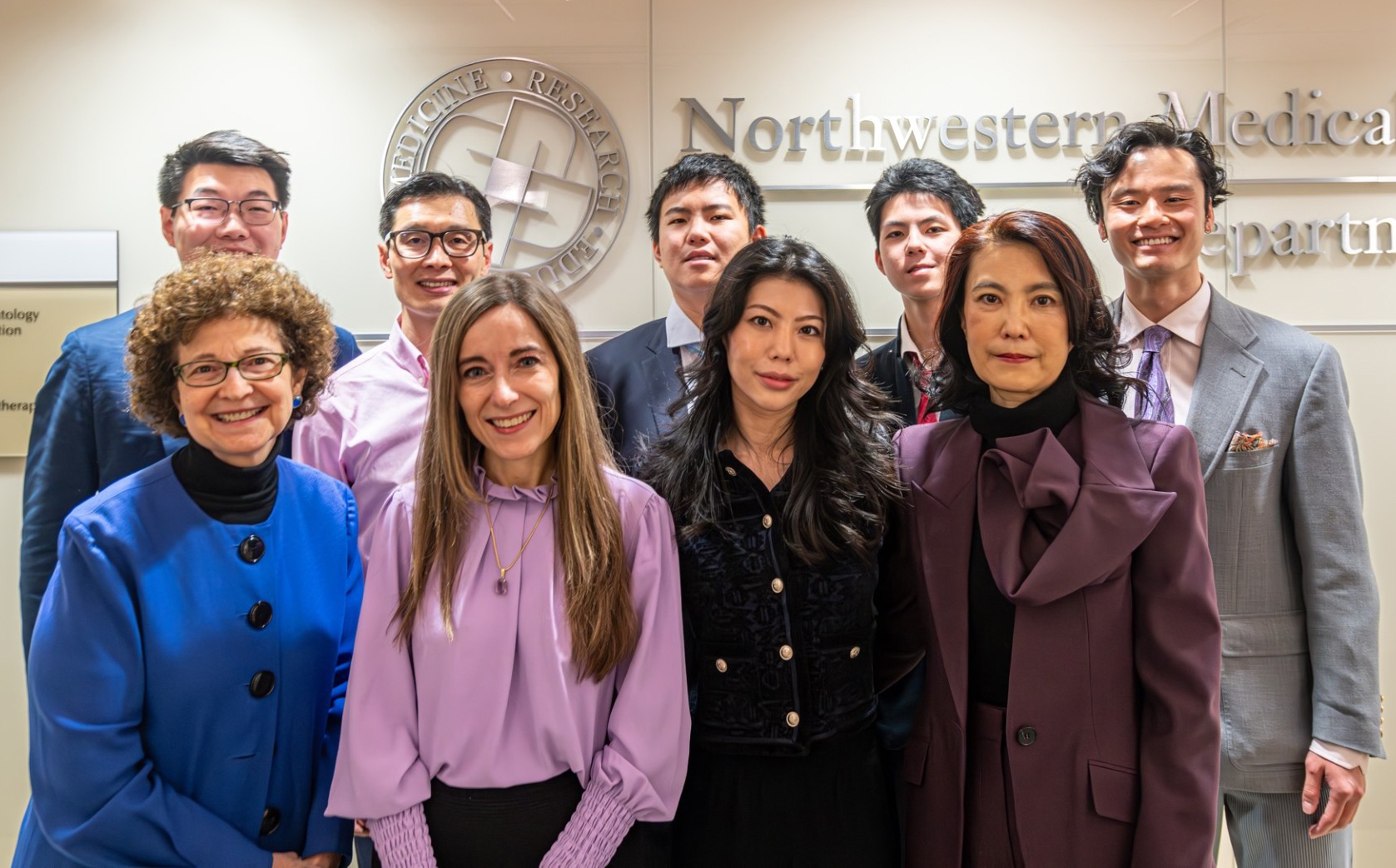From Lab Bench to Legacy: NU Student’s Experience Inspires $1 Million Gift to Alopecia Research

While a biology major at Northwestern University, Annalina Che ’23 spent her summers and school years immersed in stem cell and aging research in the lab of Rui Yi, PhD, at Northwestern University Feinberg School of Medicine. That experience, Che says, shaped her academic interests, launched her career in regenerative medicine, and ultimately inspired her family’s decision to support hair loss research.
In 2024, the Che family pledged $1 million to the Hair-Alopecia Innovation and Research (HAIR) program in the Department of Dermatology at Feinberg. The gift supports a growing initiative focused on understanding and treating alopecia through translational research and clinical collaboration.
Dr. Yi, the Paul E. Steiner Research Professor of Pathology and a professor of Dermatology, remarked that their relationship has come full circle since Che’s days in his lab as an undergraduate studying biology and business.
“I first knew and mentored Annalina as a curious and ambitious student in the lab; now, the family’s generosity is helping us to push the frontiers of hair follicle stem cell research,” he said. “It’s a reminder that mentorship can blossom into lifelong partnership, and that science thrives when personal connections and philanthropy intersect.”
Che, now the founder of a biotech startup in New York, first connected with Dr. Yi’s lab during her sophomore year. Drawn to his lab’s work on stem cells and aging, she reached out after reading several of his team’s publications.
“I really wanted to get involved in what they were doing,” Che said. “It was a wonderful experience. I learned about research in academia and the world of regenerative medicine.”
Dr. Yi paired Che with a graduate student studying the development of sebaceous glands, organs connected to the hair follicle that release an oily protective substance called sebum. Che impressed Dr. Yi with her work ethic and research presentation skills. She also helped grow and develop opportunities for other undergraduates to work in the lab.
The Che family visited Northwestern’s Chicago campus this past January to tour labs and facilities supporting HAIR and meet with faculty and students. During the visit, they delivered the first $100,000 installment of their pledge, which will support pilot grants through the Skin Biology and Diseases Resource-based Center (SBDRC), Dr. Yi’s alopecia DNA sequencing research, and additional projects at HAIR.
Restoring Identity through Hair Restoration

The HAIR program, for which Dr. Yi oversees basic science research, unites dermatologists, pathologists, and basic scientists to address one of dermatology’s most persistent challenges: hair loss. The program emphasizes equity across both its research and patient populations and aims to translate laboratory discoveries into real-world treatments. HAIR also aims to bring to the fore the psychological aspect of hair loss: how it is deeply ingrained in the patient’s identity.
“We’re looking for different solutions that are going to help patients not only look better but feel better—a comprehensive treatment profile,” Che said.
By combining clinical expertise with leading-edge genomics, Dr. Yi said, the scientists aim to give every patient a clear molecular explanation for their hair loss and a treatment plan tailored to their unique biology.
Thanks in part to support from the Che family, scientists are building the first high-resolution single cell and spatial atlas of human scalp, capturing both healthy follicles and those affected by diseases, Dr. Yi said. The data are already yielding unprecedented insights into how human hair follicles form, function, and fail.
Hair loss disorders are treated with a one-size-fits-all approach. But HAIR’s goal, Dr. Yi said, is to replace that uniformity with patient-specific treatments.
“We are approaching the inflection point of personalized medicine, and few aspects of health feel more personal than our own hair,” he said.
Che said her family has long supported educational initiatives, including scholarships at local schools and their alma maters. This is their first major investment in medical research.
Now working in biotech, Che sees the HAIR program as a model for how academic research can connect with clinical practice and patient care. Her startup, Stemtology, uses artificial intelligence to accelerate breakthroughs in regenerative medicine, developing treatments for inflammatory diseases like osteoarthritis and creating a molecule aimed at reversing skin aging.
She said her involvement in Dr. Yi’s lab demonstrated to her the importance of translational research, and that she strives to uphold the bench-to-bedside model in her startup as well as through her family's philanthropy.
“We’re undertaking really important work here,” Che said. “And I’m just super excited to see what [HAIR] is going to accomplish.”
For more information about supporting the HAIR program, please contact Ashley Lough at ashley.lough@northwestern.edu or 312-503-0759.
This story was published in the September 2025 issue of The Philanthropist, a newsletter for supporters and friends of Northwestern University Feinberg School of Medicine. View our publications here.